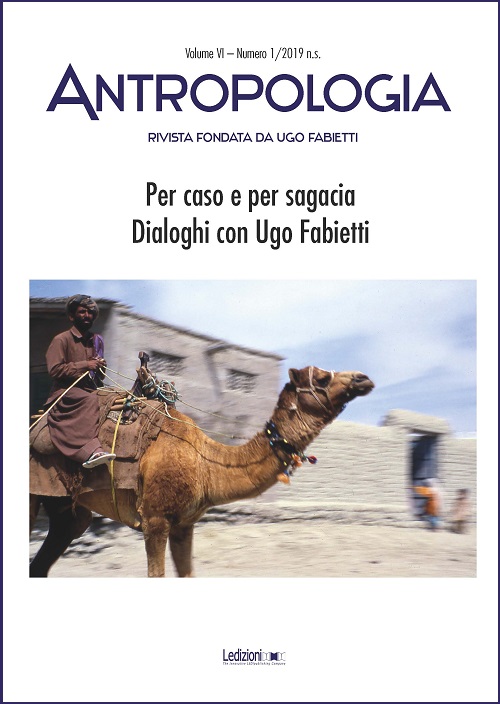Theoretical errors, discoveries and exchanges between methods and voices from the field
DOI:
https://doi.org/10.14672/ada20191534253-276Keywords:
Anthropology of kinship, Anthropology of language, Ikoots/huave, Doing vs. being, Life storiesAbstract
The "discoveries" resulting from any field research can often, as Fabietti (2012) suggests, turn out to be decentralized from the questions that had motivated that research. Decentralized both in referential terms: what is eventually discussed or written about; and in reflexive, methodological - procedural terms: they involve alternative and sometimes quite divergent ways of proceeding toward the "discoveries" themselves. In this paper, I retrace the first years of my research among the ikoots / huave of San Mateo del Mar (Oaxaca, Mexico), starting in 1979; years of intense frequentations of domestic nuclei that shaped my listening and my perspectives, leading me to seek alternative instrumentations than the theoretical baggage on kinship with which I had started and to open up to semantic anthropology first and linguistic anthropology later. Following the flow of experience, I was discovering that I was measuring myself against a society centered on "doing" and not on "being," and not only because the verb "to be" does not exist. Representations of women's and men's roles were articulated not in ontological terms, but rather in the sense of "praxis," a "doing" (-rang) according to gender, roles and positions. In this context, the dimension of "will" frequently emerged in their daily discourses, to the total detriment of other concepts (expressed for us by our modal verbs: 'power' and 'duty'), which were almost nonexistent. Each person's load of agentivity appeared unexpectedly radical vis-à-vis the parental role, allowing them, for example, to the voluntary 'interruption' of a consanguineous bond. The discursive rappresentations of social acting placed subjects, such as women, elderly people, and children, not always contemplated by the research of the epoch, at the center, giving entirely unexpected dimensions of parental "doing." This was fully framed in an anti-ontological representation of social relations, based rather on the centrality of "praxis" and "will" absent from Mesoamericanist (and other) anthropological research of those years.
Downloads
Published
Issue
Section
License
Copyright (c) 2019 Antropologia

This work is licensed under a Creative Commons Attribution 4.0 International License.
Authors maintain the copyright of their original work and grant the Journal the right to first publication, licensed after 36 months under a Creative Commons Licence – Attribution, which allows others to share the work by indicating the authorship and first publication in this journal.
Authors may agree to other non-exclusive licence agreements for the distribution of versions of their published work (for example in institutional archives or monographs) under the condition that they indicate that their work was first published in this journal.



